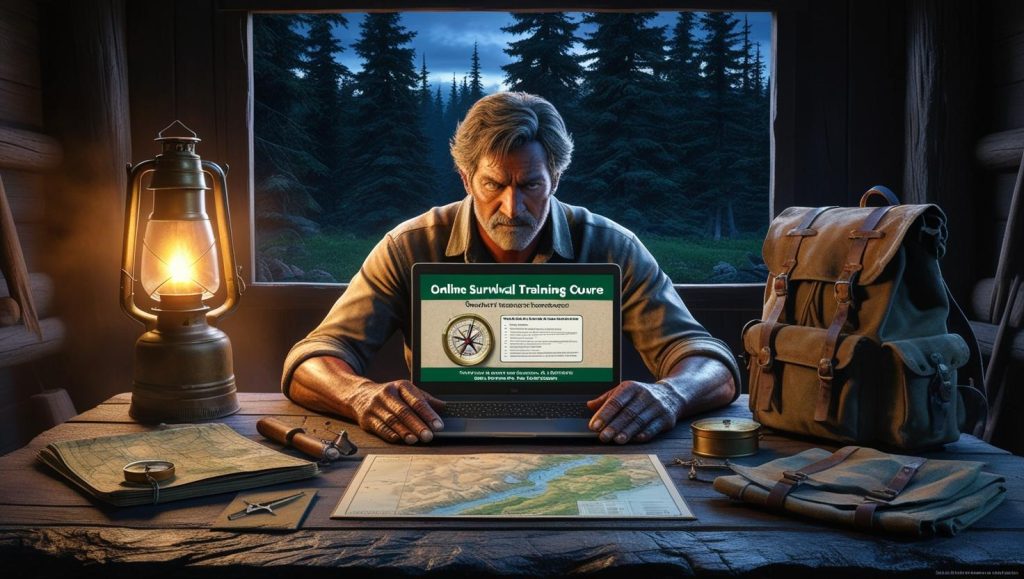Resilience Training

Harnessing Survival Intelligence Through E-Learning: A Modern Approach to Resilience Training
In today’s fast-paced and often unpredictable world, the concept of survival extends beyond the traditional outdoor skills to encompass a broader spectrum of challenges. Survival intelligence now involves navigating complex social, economic, and technological landscapes. E-learning has emerged as a pivotal tool in cultivating these essential survival skills, providing accessible, flexible, and comprehensive training solutions that cater to the diverse needs of modern learners.
# The Evolution of Survival Skills
Historically, survival skills were associated with physical endurance and resourcefulness in natural environments. However, as societies have evolved, so too have the definitions and requirements of survival. Today, survival intelligence not only includes physical preparedness but also emotional resilience, mental agility, and technological adeptness. This shift reflects the changing scenarios that individuals face in both personal and professional spheres.
# E-Learning: A Versatile Educational Platform
E-learning has revolutionized how we access and consume information. It offers a dynamic platform for interactive learning experiences that can be tailored to individual pacing and preferences. This flexibility makes e-learning an ideal medium for survival intelligence training, which requires a personalized approach to effectively address the unique challenges faced by each learner.
# Interactive Simulations and Scenarios
One of the most effective e-learning tools for survival intelligence is the use of interactive simulations and scenarios. These digital recreations of real-world challenges allow learners to practice decision-making, problem-solving, and critical thinking skills in a controlled, risk-free environment. By engaging in these simulations, learners can experience the consequences of their decisions and refine their strategies accordingly.
# Adaptive Learning Technologies
E-learning platforms often incorporate adaptive learning technologies that adjust the difficulty level and content based on the learner’s performance. This personalized learning experience is crucial in survival intelligence training, where the ability to respond to changing circumstances is paramount. Adaptive technologies ensure that each learner is constantly challenged but not overwhelmed, promoting continuous improvement and confidence building.
# The Role of E-Learning in Emotional Resilience
Survival intelligence also involves managing stress and developing emotional resilience. E-learning courses designed to enhance emotional intelligence teach strategies for coping with anxiety, stress management techniques, and methods for maintaining calm in crisis situations. These courses often include mindfulness exercises, guided meditations, and interactive discussions that help learners apply these techniques in various aspects of their lives.
# Integrating Technological Proficiency
As technology continues to shape our lives, technological proficiency has become a critical component of survival intelligence. E-learning platforms are uniquely suited to teach these skills because they themselves are technological products. Courses on digital literacy, cybersecurity awareness, and data privacy equip learners with the knowledge needed to navigate the digital world safely and effectively.
# Accessibility and Inclusivity
A significant advantage of e-learning in survival intelligence training is its accessibility. People from different geographical locations, backgrounds, and abilities can access quality education without the constraints of physical presence or scheduling conflicts. This inclusivity broadens the reach of survival training, ensuring that more individuals are prepared to face modern-day challenges.
# Continuous Learning and Updates
The landscape of survival challenges is constantly evolving, necessitating continual learning and adaptation. E-learning platforms excel in providing up-to-date content that can quickly adapt to new information or emerging trends. This capability ensures that learners always have access to the latest knowledge and strategies in survival intelligence.
# Conclusion
As we navigate through complexities of modern life, the fusion of survival intelligence with e-learning provides a robust framework for developing essential life skills. From enhancing emotional resilience to fostering technological savvy, e-learning platforms offer diverse tools that prepare individuals for various facets of survival in contemporary settings. By embracing this modern approach to resilience training, we not only equip ourselves with practical skills but also foster a culture of lifelong learning and adaptability that is crucial for thriving in today’s world.














